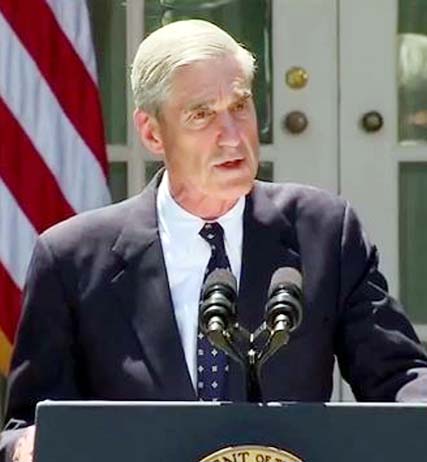
AP, New York :
If Sean Hannity had been working in the 1970s, his Fox News Channel colleague Geraldo Rivera believes that President Richard Nixon would have never needed to resign because of the Watergate scandal.
It’s not clear whether Rivera thinks that’s a good thing; Fox refused to let him speak about his recent assertion on Hannity’s radio show. But it does speak starkly to the power of Fox’s most popular figure and devoted supporter of President Donald Trump at a time when the media’s partisan divide seems wider than ever.
The point is driven home by the continuing coverage of special counsel Robert Mueller’s investigation of Trump and, in the past two weeks, about the Republican-written memo on the probe.
Fox, CNN and MSNBC, which are now more political talk than news channels, have been consumed by the story. On the day the GOP memo was released, the different worlds they inhabit couldn’t have been more clear.
“This is Watergate times a thousand,” Hannity said, charging the FBI with deliberately misleading a federal judge.
The “deep state,” Hannity’s term for government officials opposed to Trump, was undermining his presidency and democracy itself. The media, excepting him, have been sitting on the sidelines as the scandal unfolds, he said.
“This is so deep in its corruption that it should shatter the conscience of law-abiding American citizens,” he said.
Flip over to MSNBC at the same time, and Rachel Maddow was laughing.
Not only did the memo not live up to claims made about it, even by the president, it factually undermined the accusation that a dossier paid for by Trump opponents had triggered the investigation into the Trump team’s Russian ties, she said. Then she turned to Fox, whose headquarters is across a Manhattan avenue from Maddow’s studio.
“They have been hyping and hyping and huffing and puffing, working their audience up into a frenzy for two solid weeks,” she said. “They have literally built a right-wing public movement that this memo must be released, because this memo will fix the Trump presidency, it will fix the Russian scandal for President Trump. It will make the whole thing go away.”
David Gergen disagrees with Geraldo Rivera. The Harvard professor and CNN analyst worked in Nixon’s White House and said his crimes were too serious to survive, and he had lost the support of the Republican party.
“The deeper danger now is that the erosion of trust and the paralysis in governing is threatening our democracy,” Gergen said.
The press had critics in Nixon’s day – his first vice president, Spiro Agnew, memorably skewered reporters. The difference is the criticism was coming from outside of the media, said Tom Bettag, a University of Maryland journalism professor and veteran television producer who worked at CBS News in the 1970s.
“There couldn’t have been a Hannity in Nixon’s time,” Bettag said. “There wasn’t an outlet with the reach that a Fox or MSNBC has that specializes in a specific political point of view.”
If Sean Hannity had been working in the 1970s, his Fox News Channel colleague Geraldo Rivera believes that President Richard Nixon would have never needed to resign because of the Watergate scandal.
It’s not clear whether Rivera thinks that’s a good thing; Fox refused to let him speak about his recent assertion on Hannity’s radio show. But it does speak starkly to the power of Fox’s most popular figure and devoted supporter of President Donald Trump at a time when the media’s partisan divide seems wider than ever.
The point is driven home by the continuing coverage of special counsel Robert Mueller’s investigation of Trump and, in the past two weeks, about the Republican-written memo on the probe.
Fox, CNN and MSNBC, which are now more political talk than news channels, have been consumed by the story. On the day the GOP memo was released, the different worlds they inhabit couldn’t have been more clear.
“This is Watergate times a thousand,” Hannity said, charging the FBI with deliberately misleading a federal judge.
The “deep state,” Hannity’s term for government officials opposed to Trump, was undermining his presidency and democracy itself. The media, excepting him, have been sitting on the sidelines as the scandal unfolds, he said.
“This is so deep in its corruption that it should shatter the conscience of law-abiding American citizens,” he said.
Flip over to MSNBC at the same time, and Rachel Maddow was laughing.
Not only did the memo not live up to claims made about it, even by the president, it factually undermined the accusation that a dossier paid for by Trump opponents had triggered the investigation into the Trump team’s Russian ties, she said. Then she turned to Fox, whose headquarters is across a Manhattan avenue from Maddow’s studio.
“They have been hyping and hyping and huffing and puffing, working their audience up into a frenzy for two solid weeks,” she said. “They have literally built a right-wing public movement that this memo must be released, because this memo will fix the Trump presidency, it will fix the Russian scandal for President Trump. It will make the whole thing go away.”
David Gergen disagrees with Geraldo Rivera. The Harvard professor and CNN analyst worked in Nixon’s White House and said his crimes were too serious to survive, and he had lost the support of the Republican party.
“The deeper danger now is that the erosion of trust and the paralysis in governing is threatening our democracy,” Gergen said.
The press had critics in Nixon’s day – his first vice president, Spiro Agnew, memorably skewered reporters. The difference is the criticism was coming from outside of the media, said Tom Bettag, a University of Maryland journalism professor and veteran television producer who worked at CBS News in the 1970s.
“There couldn’t have been a Hannity in Nixon’s time,” Bettag said. “There wasn’t an outlet with the reach that a Fox or MSNBC has that specializes in a specific political point of view.”

